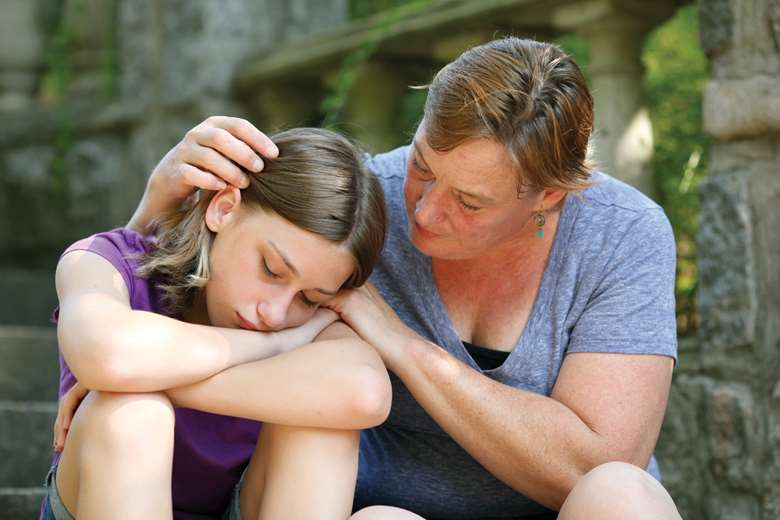Skills for the Job: Helping children with anxiety
Barbara McIntosh
Tuesday, May 28, 2013
Feelings of anxiety can trigger worrying symptoms, but services are available to help children and young people overcome them

What is anxiety?
Anxiety is a type of fear usually associated with the thought of something that has gone wrong in the past and anticipating it going wrong in the future, rather than something happening right now. When a young person feels anxious, their mind and body speed up and they can experience physical and emotional symptoms, including an increased heart rate, sweating, tense muscles, irritability or loss of self-confidence.
These physical symptoms are known as the fight or flight response, which characterises how someone reacts to an emergency. It increases the blood flow to the muscles and focuses the mind on the thing that is scaring you.
These feelings and symptoms can hold you back from doing things and make you unwell. It can be hard to break the cycle, but young people can learn to feel less fearful and to cope with their fear so it does not stop them enjoying life.
What are the causes of childhood anxiety?
Most children grow up mentally healthy, but research suggests that the number of children and young people struggling with mental health problems is growing. Dealing with change can trigger anxiety in children, particularly in those who are already vulnerable.
Factors such as moving home, the birth of a new brother or sister, or starting a new school can cause children to feel anxious.
Teenagers often experience emotional turmoil as their minds and bodies develop. An important part of growing up for a young person is working out and accepting who they are, but some young people find it hard to make this transition.
{"@context":"https://schema.org","@type":"Article","mainEntityOfPage":{"@type":"WebPage","@id":"https://google.com/article"},"headline":"Skills for the Job: Helping children with anxiety","author":{"@type":"Person","name":"Barbara McIntosh"},"datePublished":"5/28/2013 4:24:00 PM","abstract":"Feelings of anxiety can trigger worrying symptoms, but services are available to help children and young people overcome them","articleBody":"\u003cp\u003e\u003cstrong\u003eWhat is anxiety?\u003c/strong\u003e\u003cbr\u003eAnxiety is a type of fear usually associated with the thought of something that has gone wrong in the past and anticipating it going wrong in the future, rather than something happening right now. When a young person feels anxious, their mind and body speed up and they can experience physical and emotional symptoms, including an increased heart rate, sweating, tense muscles, irritability or loss of self-confidence.\u003cbr\u003e\u003cbr\u003eThese physical symptoms are known as the fight or flight response, which characterises how someone reacts to an emergency. It increases the blood flow to the muscles and focuses the mind on the thing that is scaring you.\u003cbr\u003e\u003cbr\u003eThese feelings and symptoms can hold you back from doing things and make you unwell. It can be hard to break the cycle, but young people can learn to feel less fearful and to cope with their fear so it does not stop them enjoying life.\u003cbr\u003e \u003cbr\u003e\u003cstrong\u003eWhat are the causes of childhood anxiety?\u003c/strong\u003e\u003cbr\u003eMost children grow up mentally healthy, but research suggests that the number of children and young people struggling with mental health problems is growing. Dealing with change can trigger anxiety in children, particularly in those who are already vulnerable.\u003cbr\u003e\u003cbr\u003eFactors such as moving home, the birth of a new brother or sister, or starting a new school can cause children to feel anxious. \u003cbr\u003e\u003cbr\u003eTeenagers often experience emotional turmoil as their minds and bodies develop. An important part of growing up for a young person is working out and accepting who they are, but some young people find it hard to make this transition.\u003cbr\u003e \u003cbr /\u003e\u003c/br /\u003e"}




